Photon-enabled quantum communication could send exponential amounts of data securely over interstellar distances, potentially to intelligent ET societies.


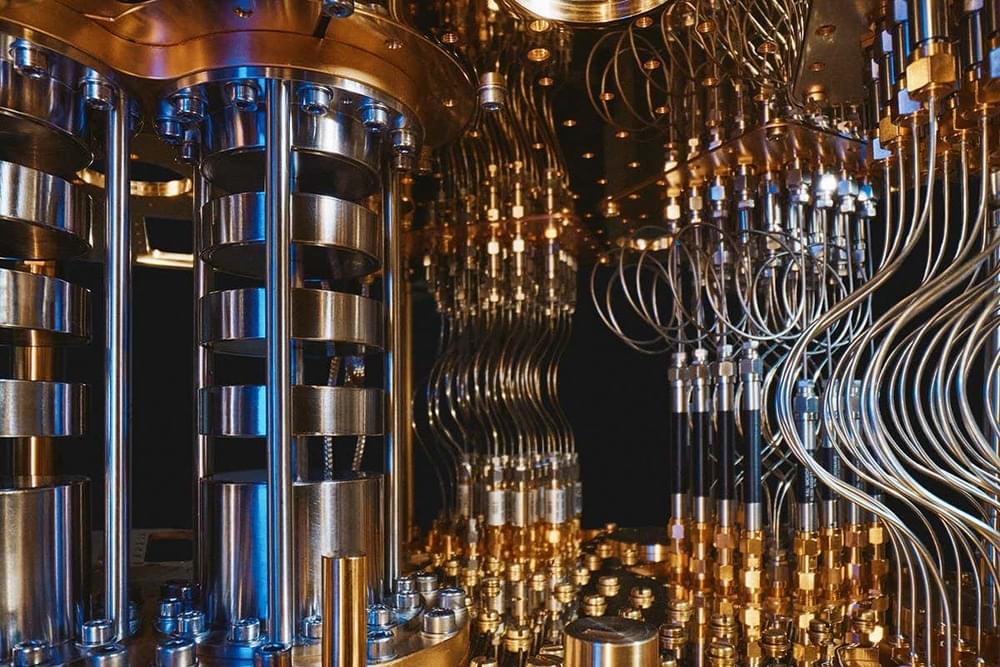
Quantum bits inspired by Schrödinger’s cat could allow quantum computers to make fewer mistakes and more efficiently crack algorithms used for encryption.
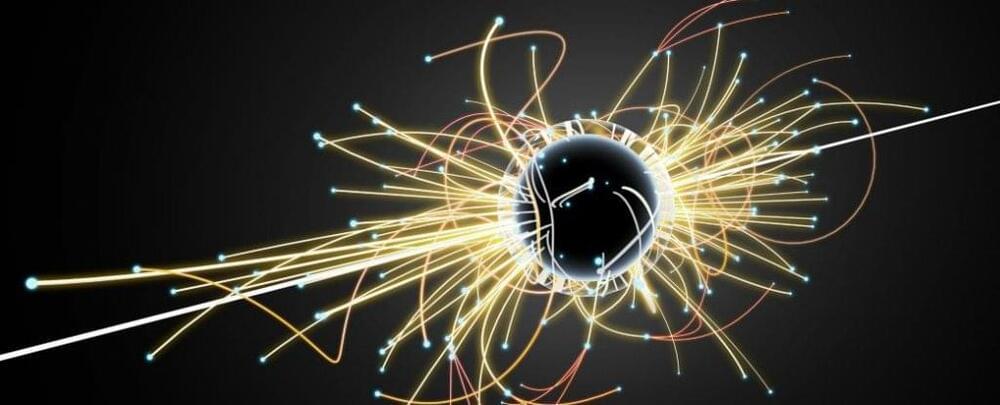
After 85 years of searching, researchers have confirmed the existence of a massless particle called the Weyl fermion for the first time ever. With the unique ability to behave as both matter and anti-matter inside a crystal, this strange particle can create electrons that have no mass.
The discovery is huge, not just because we finally have proof that these elusive particles exist, but because it paves the way for far more efficient electronics, and new types of quantum computing. “Weyl fermions could be used to solve the traffic jams that you get with electrons in electronics — they can move in a much more efficient, ordered way than electrons,” lead researcher and physicist M. Zahid Hasan from Princeton University in the US told Anthony Cuthbertson over at IBTimes. “They could lead to a new type of electronics we call ‘Weyltronics’.”
So what exactly is a Weyl fermion? Although we’re often taught in high school science that the Universe is made up of atoms, from a particle physics point of view, everything is actually made up of fermions and bosons. Put very simply, fermions are the building blocks that make up all matter, such as electrons, and bosons are the things that carry force, such as photons.
Experts consider glass nanoparticles kept inside extreme vacuum layers as potential platforms for examining the quantum world’s limits. However, a question in the field of quantum theory remains unanswered: at which size does an object start being described by quantum physics laws rather than classical physics laws?
Achieving Quantum-State Cooling in More Than One Direction Is Challenging
SciTechDaily reports that a research team attempted to precisely answer the question through the ERC-Synergy project Q-Xtreme. The team comprised Lukas Novotny from ETH Zurich, Markus Aspelmeyer from the University of Vienna, Oriol Romero-Isart from the University of Innsbruck, and Romain Quidant from Zurich.

Determining the passage of time in our world of ticking clocks and oscillating pendulums is a simple case of counting the seconds between ‘then’ and ‘now’.
Down at the quantum scale of buzzing electrons, however, ‘then’ can’t always be anticipated. Worse still, ‘now’ often blurs into a haze of vagueness. A stopwatch simply isn’t going to work for some scenarios.
A potential solution could be found in the very shape of the quantum fog itself, according to a 2022 study by researchers from Uppsala University in Sweden.
HRL Laboratories, LLC, has published the first demonstration of universal control of encoded spin qubits. This newly emerging approach to quantum computation uses a novel silicon-based qubit device architecture, fabricated in HRL’s Malibu cleanroom, to trap single electrons in quantum dots. Spins of three such single electrons host energy-degenerate qubit states, which are controlled by nearest-neighbor contact interactions that partially swap spin states with those of their neighbors.
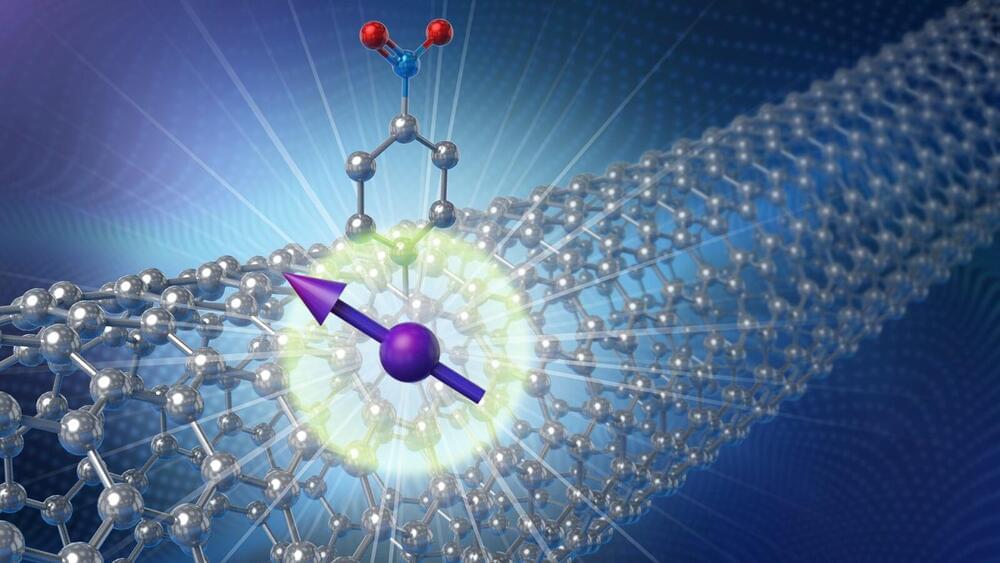
Scientists are vigorously competing to transform the counterintuitive discoveries about the quantum realm from a century past into technologies of the future. The building block in these technologies is the quantum bit, or qubit. Several different kinds are under development, including ones that use defects within the symmetrical structures of diamond and silicon. They may one day transform computing, accelerate drug discovery, generate unhackable networks and more.
Working with researchers from several universities, scientists at the U.S. Department of Energy’s (DOE) Argonne National Laboratory have discovered a method for introducing spinning electrons as qubits in a host nanomaterial. Their test results revealed record long coherence times—the key property for any practical qubit because it defines the number of quantum operations that can be performed in the lifetime of the qubit.
Electrons have a property analogous to the spin of a top, with a key difference. When tops spin in place, they can rotate to the right or left. Electrons can behave as though they were rotating in both directions at the same time. This is a quantum feature called superposition. Being in two states at the same time makes electrons good candidates for spin qubits.
Short and sweet. Everyone needs a daily dose of Sabine.
Is science close to explaining everything about our universe? Physicist Sabine Hossenfelder reacts.
Up next, Physics’ greatest mystery: Michio Kaku explains the God Equation ► https://youtu.be/B1GO1HPLp7Y
In his 1996 book “The End of Science”, John Horgan argued that scientists were close to answering nearly all of the big questions about our Universe. Was he right?
The theoretical physicist Sabine Hossenfelder doesn’t think so. As she points out, the Standard Model of physics, which describes the behavior of particles and their interactions, is still incomplete as it does not include gravity. What’s more, the measurement problem in quantum mechanics remains unsolved, and understanding this could lead to significant technological advancements.
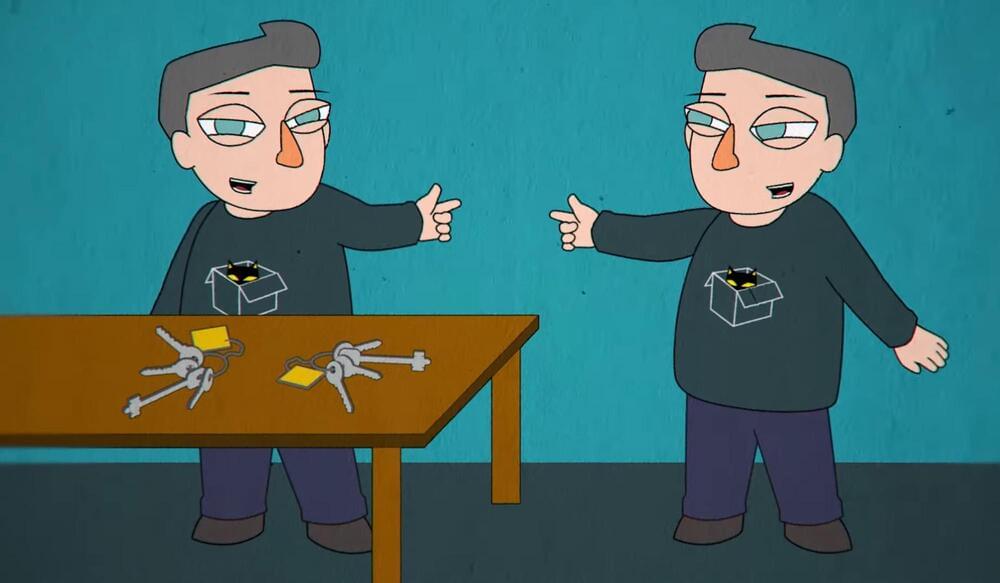
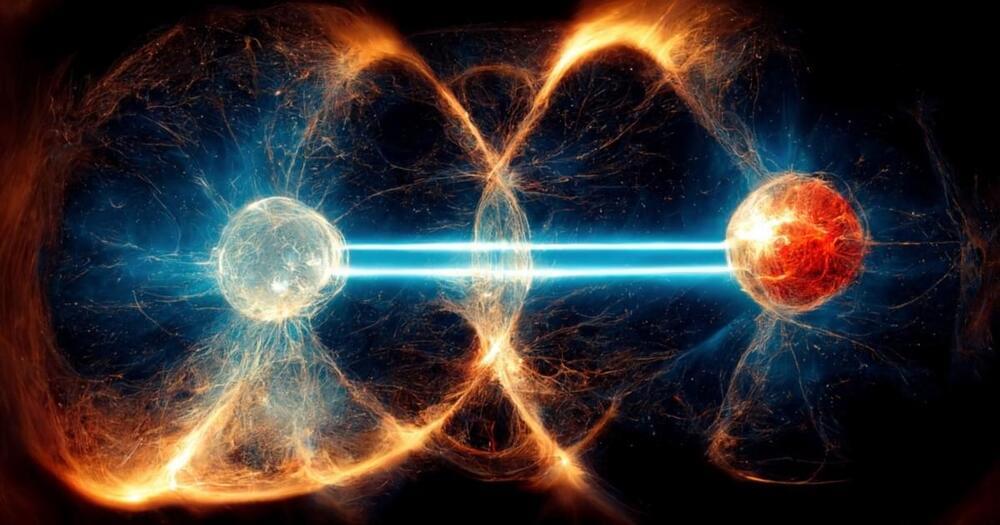
For the first time, an experiment was able to demonstrate that it isn’t just identical quantum particles that can become entangled, but particles with opposite electric charges, too. (The π+ and the π–, for what it’s worth, are one another’s antiparticle.) The technique of passing two heavy nuclei very close to one another at nearly the speed of light allows for photons, arising from the electromagnetic field of each nucleus, to interact with the other nucleus, occasionally forming a rho particle that decays into two pions. When both nuclei do this at once, the entanglement can be seen, and the radius of the atomic nucleus can be measured.
It’s also remarkable that measuring the size of the nucleus through this method, which uses the strong force rather than the electromagnetic force, gives a different, larger result than one would get by using the nuclear charge radius. As lead author on the study, James Brandenburg, put it, “Now we can take a picture where we can really distinguish the density of gluons at a given angle and radius. The images are so precise that we can even start to see the difference between where the protons are and where the neutrons are laid out inside these big nuclei.” We now have a promising method to probe the internal structure of these complex, heavy nuclei, with more applications, no doubt, soon to come.